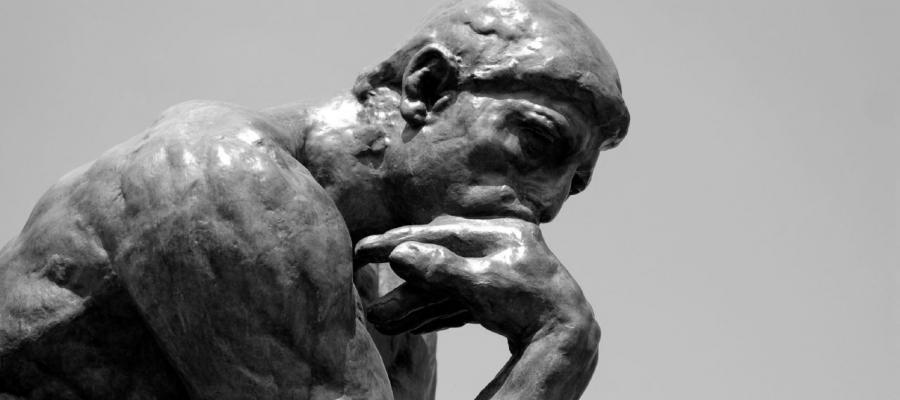Artefact Description
For my third artefact I chose to select an assignment - Theory of Practice in Education, which I completed as part of MDDE 603 Foundations of Instructional Design
"MDDE 603: Foundations of Instructional Design: Systems Analysis and Learning Theory has been designed to foster new ways of looking at education, particularly distance education, and new perspectives of how complex systems work. It explores teaching and learning, and provides you with important insights related to learning theory and how it relates to instructional design."
Assignment 2 Part B: Theory of Practice Paper (10%) 
Consider the various learning theories that have been addressed in the course to date. Which of these theories speak to you? Why are these theories of relevance to you? What do they have to say about how people learn? This short paper is intended to provide you with an opportunity to reflect upon and synthesize the theories covered in MDDE 603 to date, and to apply them to your own teaching - learning context.
Write a short, five page paper (double-spaced, 12 point type) that presents your personal Theory of Practice about teaching and learning. Your teaching/learning context, preferably a distance/online or blended learning context, should be described briefly in an introductory paragraph. The paper should include the following components:
-
Your view of learning encapsulated in three learning principles.
-
A short description of each principle, including which specific learning theory or theories support each principle. In other words, provide a brief statement of the learning principle, cite the most relevant theorist(s) pertaining to that principle, and briefly explain how those theories justify your principle.
For each principle, describe one or two specific instructional examples of how you apply the principle in your own teaching/learning situation, to design and/or deliver instruction.
Why this Artefact?

This was probably my favourite assignment throughout my Masters but in one of my least favourite courses. Regardless of the grade achieved (I received an 8.5/10), I am pretty proud of the effort I put in and the end product. This assignment required some real deep thinking about my educational philosophy and being asked to encapsulate that in 3 principles was difficult. (1.5, 4.1) This process helped refine my thinking about education, and subsequently revealed to me, had an impact on my own work at CMCC.
I also liked this assignment because it allowed us to personalize the experience - relating it to things that we have done or are planning to do at our home institution. I was able to relate my educational principles to things I was working on at the time. (2.1) Looking back on this assignment, I probably wouldn't change anything about those principles at this point. And I feel that those principles have also guided me in changes we've made to our curriculum recently.
One area that I am continuing to apply these 3 principles would be in the delivery of our Teacher Education Program here at CMCC. This program is for residents and new or experienced faculty, and provides a primer on pedagogical theory as well as practical strategies utilized in the teaching of adult learners. This is all done through the lens of a developing health care professional. We just finished a teaching conference at our institution, and looking back the same 3 principles held true there as well!
What I learned
 This assignment required me to take a hard look at myself, and how my own past experiences in public school, undergraduate and graduate education ultimately had an effect on my own philosophy of learning. Putting these down on paper took a ton of reflection about what I was trying to implement at CMCC as well as my developing views towards the purpose of education. (4.1, 4.2) I reflected on my own upbringing. Specifically skipping a grade (3), being classified as "gifted", and going to unniversity. I also contemplated my own addiction to post-secondary education! (BSc, 2 Masters and a DC)
This assignment required me to take a hard look at myself, and how my own past experiences in public school, undergraduate and graduate education ultimately had an effect on my own philosophy of learning. Putting these down on paper took a ton of reflection about what I was trying to implement at CMCC as well as my developing views towards the purpose of education. (4.1, 4.2) I reflected on my own upbringing. Specifically skipping a grade (3), being classified as "gifted", and going to unniversity. I also contemplated my own addiction to post-secondary education! (BSc, 2 Masters and a DC)
I learned that in dealing with adult students for the past 12 years, my educational principles were congruent with the work of Malcolm Knowles (1985) - the father of Androgogy. (2.3) This was work that I wasn't too familiar with at the time, but in looking back my views and principles aligned nicely with his work on adult learners. I learned that to best teach these students, one must draw on their own experiences. It is also important to stress the applicability of content, either immediately or in the near future. If you don't, you risk losing their attention.
I also learned that in raising two young kids, I also tended to apply these principles I believe my three principles outlined in my assignment also hold true for the way we are trying to raise and educate our children. My youngest is in Kindergarten, and although she is at the beginning of her educational journey, I know that I will be supportive and yet critical of her experience.
Reference
Knowles, M. S. (1985). Applications in continuing education for the health professions: Chapter five of Andragogy in action. Journal of Continuing Education in the Health Professions, 5(2), 80-100.
Relevant Competencies
The following competencies are exemplified with this artefact
1. Problem Solving, Analysis, & Decision Making
1.5 Critically evaluate the relevance of information for a given situation
2. Instructional Design & Development
2.1 Critically analyze and discuss the implications of personal perspectives and epistemological orientations for the teaching-learning process
2.3 Describe and appropriately apply a range of learning and motivational theories to instructional design situations in distance education
4. Communication & Interpersonal Skills
4.1 Write clearly and in a style appropriate to purpose (eg: assignments, essays, published documents, and theses)
4.2 Construct coherent arguments and articulate ideas clearly to a range of audiences, formally and informally, through a variety of techniques and media
Artefact #3 to download
-
Download Assignment 2b.docx
Assignment 2b.docx Details
- Friday, 15 June 2018 [28KB]
Assignment 2B MDDE 603
Theory of Practice in Education
Scott M. Dunham
Athabasca University
MDDE 603 – Foundations of Instructional Design
This short paper will illustrate the author’s theory of educational practice in consideration of the learning theories studied to date. It will encompass an overall view of education encapsulated in three main principles which are grounded in pedagogical theory and established through personal experience teaching and being taught in various environments.
Learning Principle #1: Learning is a fluid process, building upon previous and ongoing experiences.
Learning preferences are shaped from the learning experiences that we’ve had previously and it can be argued that they begin to form from a very early age – even before formal schooling begins. An individual’s relationship with teaching and learning develops as one progresses through elementary school and into high school, through their (arguably) most formative years. As students enter post secondary education, the framing of what education “is” plays a vital role in how they approach learning. The variety of educational practices between schools as well as the many alternative options such as language-specific, private or Montessori programs, results in students entering post secondary education with a wide range of experiences.
Constructivist learning theory states that learners construct their own understanding and knowledge through experience and through reflection on that experience. (Schunk, 2012) Learning is a fluid process, where an individual constructs meaning through their past experiences and by reflecting on those experiences, hope to deepen that learning.
Learning is also experienced differently based on the experiences taking place concurrently. At the Canadian Memorial Chiropractic College (CMCC) we provide many different experiential learning opportunities to help ensure that students are contextualizing the information which they are learning. Examples would be simulated experiences in labs, assessments involving standardized patients and observership requirements in teaching and chiropractic clinics. Learning Principle #1 also considers other factors in a student’s life which will affect their ability to learn, as well as their relationship with the learning process. Over the years we have had students who have gone through romantic break-ups, or who have experienced additional stressors such as personal health issues or the loss of a loved one. Learning cannot be looked at in a silo without consideration of these important other factors in a student’s life.
Learning Principle #2: Learning must be done voluntarily, and at the learner’s own pace.
Learning principle #2 builds on the experiential nature of learning captured in principle 1. Although early learning traditionally must be pushed upon young learners through the elementary years, the most effective learning occurs when a student chooses to learn something they have interest in. Individualized learning programs such as the Khan Academy appreciate the fact that learners go at different paces, and structure their curriculum accordingly. They also recognize that mastery can occur at different times, so their program is self-paced and step-wise. (Thompson, 2011) The success of gamification in education builds on engagement principles to show that when students choose to learn, they do so at a deeper and more successful level. (Huang and Soman, 2013)
Voluntary learning starts in a learner’s infancy, but also predominates once a learner’s “formal” education process concludes. Adult learning theory, pioneered by Malcolm Knowles, includes the preference for voluntary learning as one of the key characteristics of adults. (Knowles, 1985). Having choice in learning is also a preference of adult learners, and thus adult learners in particular learn best when learning is voluntary.
At CMCC all classes are mandatory and are taken in a specified order, but there is some choice woven into the curriculum for assignments and areas of focus. Selection of clinical placements in 4th year and supervisory clinicians also builds on this desire to have choice in their education. The decision to apply and embark on the Doctor of Chiropractic degree program is done so voluntarily, after completion of an undergraduate degree. Many of our most successful students apply to CMCC only after taking some time off to accumulate worldly experience and making sure of this very important choice.
Learning Principle #3: Learning must be applicable to an individual’s context and situation.
Students learn best when they see a direct relationship to what they are learning, and what they are going to do with this information. Solidifying the relationship between information gained, and application requires focussed curriculum planning. If a student can see the pathway towards achieving higher level of Bloom’s taxonomy, they are more apt to learn the foundations with the end in mind. This is a key foundational concept of Backwards Design in curriculum planning. (Anderson et al., 2001)
Another of Malcolm Knowles (1985) widely accepted preferences of adult learners is that learning must be oriented to the individual’s circumstance, and their orientation shifts from being subject-centered to being problem-centered. At CMCC many learning and assessment opportunities are provided that cultivate this problem-centered learning preference. Indeed, the applicability of learning is of utmost importance in creating a student’s professional identity as a health practitioner. Opportunities such as Grand Rounds begin in first year, giving students an opportunity to envision their life as a Doctor observing and interacting with patients and clinicians. This takes place to illustrate the importance of contextualizing their learning.
Conclusion
In composing a theory of practice on education, both consultation of the literature and reflection on our own practices were conducted. Drawing from elements of constructivist and andragogical learning theory, 3 learning principles were created that reflect the author’s views on education within a health care learning environment. It is suggested that these principles be routinely re-visited when planning curriculum, and in engaging in the teaching and learning process.
References
Anderson, L. W., Krathwohl, D. R., Airasian, P., Cruikshank, K., Mayer, R., Pintrich, P., Raths, J.& Wittrock, M. (2001). A taxonomy for learning, teaching and assessing: A revision of Bloom’s taxonomy. New York. Longman Publishing.
Huang, W. H. Y., & Soman, D. (2013). Gamification of education. Research Report Series: Behavioural Economics in Action, Rotman School of Management, University of Toronto.
Knowles, M. S. (1985). Applications in continuing education for the health professions: Chapter five of Andragogy in action. Möbius: A Journal for Continuing Education Professionals in Health Sciences, 5(2), 80-100.
Schunk, D. H. (2012). Learning theories: An Educational Perspective (6th. ed.). Upper Saddle Hill, NJ: Pearson Education, Inc. Chapter 6: Constructivism, (pp. 228 - 277).
Thompson, C. (2011). How Khan Academy is changing the rules of education. Wired Magazine, 126, 1-5.
Lessons Learned
I really enjoyed that the assignment could be applied to my own work at my institution. The lessons I learned included how important it was to have a firm grasp on one's own principles of practice, as they will guide every decision that one makes. I learned how difficult it was to put into words my own "philosophy" of education. It's an exercise I now do with new teachers at our school as faculty development. The process of getting this across in only 3 principles is difficult, and a learning experience unto itself. (4.1)
I also learned how important upbringing and other worldly experiences can be in shaping one's views on education. The fact that I was born into a family of scholars, that I skipped a grade and that I attended a "gifted" school growing up, had a profound effect on the value I place on education. These supportive experiences has lead to my healthy addiction to advanced education. But, I must also appreciate that not everyone comes from the background or has the same positive outlook on the value of education.
Looking back at this assignment at the end of my MEd journey, I can confidently say that these 3 principles which I had to explain and justify have held true to me. These principles have guided me with my own work in curriculum design, and in making improvements to our program at CMCC. (2.3)

Comments
Scott Dunham
22 June 2018, 4:47 PM
Wow, thanks so much for the very detailed review! Appreciate the suggestions!
Scott
Pamela Walsh
26 June 2018, 4:13 PM
Review this page with the aim of providing less description and more critical reflection.
Thank you,
Pamela
Scott Dunham
27 June 2018, 1:00 PM
Thank you Pamela, I have gone through and added additional critical refective pieces on the artefact.
Appreciate the feedback!
Scott
Pamela Walsh
01 July 2018, 7:23 PM
Thanks Scott,
I will finish reviewing your portfolio by Wednesday of this week.
Pamela